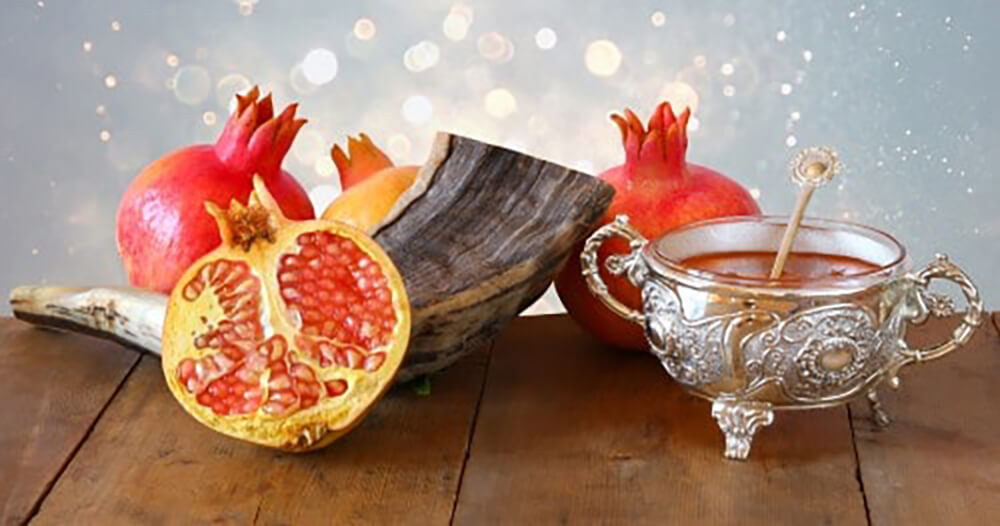By: Rabbi Osher Jungreis
The parsha always shows us the way to realize the challenges of the moment, and this week’s parsha Nitzavim is no exception; we learn how to prepare for the awesome days of Rosh HaShana and Yom Kippur. The stirring opening words, “Atem Nitzavim HaYom” – “You are standing today” (Deuteronomy 29:9)–speaks volumes. In gematria–numerology–those words also mean “La’amod L’slichos” to stand in front of G-d and seek forgiveness. During the entire year we “run” from place to place, from activity to activity, and some of us run from relationship to relationship. But now, G-d’s day of judgment is upon us and we are commanded to stand still, probe our souls, examine our hearts, and give an accounting of our lives. The passage goes on to enumerate the various strata of the population: the leaders, the elders, the officers, the men, the women, the children, the proselytes, the hewer of wood, the drawer of water – and the question that arises is that since the Torah already mentioned that all of us are standing before G-d, what is the purpose of this enumeration which at first glance appears to be redundant?
The answer given is once again a prescription for this High Holiday season. We are all responsible one for the other. Our destiny is intertwined, so we must pray, not only for ourselves, but for K’lal Yisroel – all our people. This is especially relevant today when our brethren in Israel are in such a desperate state and people in general are beset by so many problems. We can make a difference by studying Torah and observing mitzvos. Thus we can elevate our entire nation. The Converse however, is also true. Our abandonment of Torah, our lack of observance diminishes our entire people. In these very critical times, we simply cannot afford to do that.
There is a posuk–passage, in this week’s parsha that we repeat during the High Holiday services which truly teaches us our responsibilities: “The hidden matters are for G-d, but the revealed are for us” (Deut. 28:28), meaning that that which a person does privately and of which others have no knowledge, for that we cannot be held accountable–but that which is public and known, and is countenanced–for that we are held liable, and our silence testifies against us. We have a responsibility to remind one another of our G-d given destiny, of our Jewish heritage. So let’s approach Rosh HaShana with commitment to try to bring our brethren closer to HaShem. Let us unite in love and genuine concern, and in that merit, the Almighty will surely grant us a good, blessed New Year.
CUSTOMS OF EREV ROSH HASHANA–THE LAST DAY OF THE YEAR
- We rise earlier than on other Selichos days to recite special prayers.
- It is a tradition to fast on Erev Rosh HaShana until noon. Since this is the last day of the year, we prepare ourselves for the Day of judgment by minimizing our physical needs.
- We devote this last day of the year to Prayer, Charity and Torah study.
- We purchase special fruits for the Shecheyanu blessing and set them aside for the second night of Rosh HaShana. We also buy special foods called simanim which symbolize a blessed New Year.
For example: honey for a sweet New Year, round challah which represents the crown of HaShem and a complete year, carrots (tsimes) to increase our merit. In Yiddish, carrots are called meren, which literally means to increase.
THEMES OF THE ROSH HASHANA SERVICE
Malchiyos We praise G-d who is the King of the Universe and we crown Him as our King.
Zichronos We recall the merits of our forefathers, Abraham, Isaac, and Jacob, and we beseech G-d to grant us a blessed year in their merit.
Shofaros We remember the sound of the shofar at Mt. Sinai and we look forward to the sound of the great shofar which will be sounded when Moshiach arrives.
ASERES YIMEI TSHUVA
The days between Rosh Hashana and Yom Kippur are called the Ten Days of Repentanace. During these ten days, it is appropriate to adopt mitzvos, good deeds not ordinarily observed during the rest of the year. The Zodiac sign of Tishrei is a pair of scales. Every Jew must look at these scales as though they are balanced and attempt to tip them in his favor through increased Torah study, mitzvos, acts of loving kindness and tzedukah.For more detailed information on Rosh HaShana and Yom Kippur, please check our web site – www.hineni.org
THOUGHT FOR THE WEEK
Tshuva (Repentance), Tefilla (Prayer) and Tzedukah (Charity) cancel the evil decree. (Avos, 4:11)
On behalf of the entire Hineni family, I would like to wish everyone a sweet, happy, and healthy New Year, 5772. We thank you for your many good wishes and we are looking forward to greeting you at our beautiful services at the Essex House, praying together, growing together, and celebrating together.
Shabbat Shalom, Good Yom Tov, and a K’siva V’Chasima Tova. May G-d accept our prayers and grant peace for all our people. (www.hineni.org)




